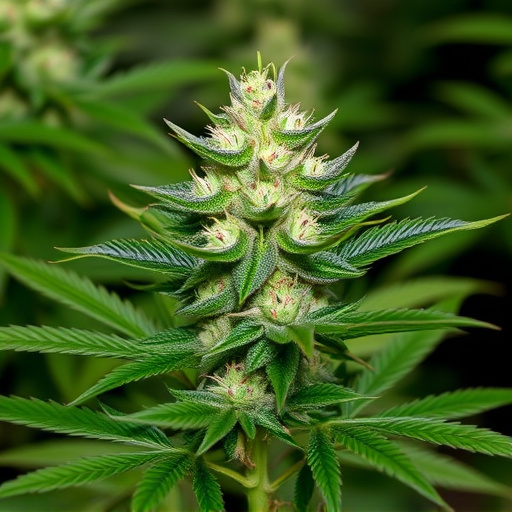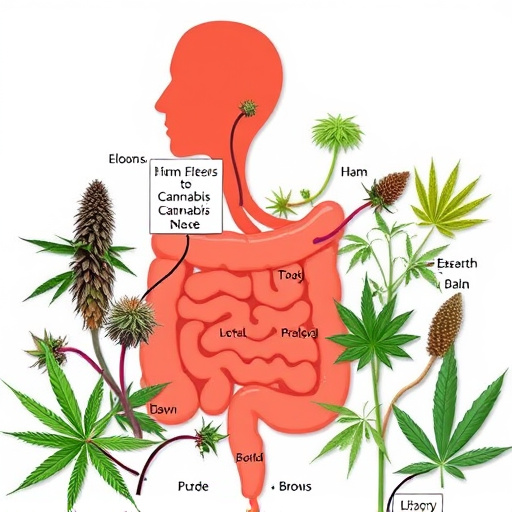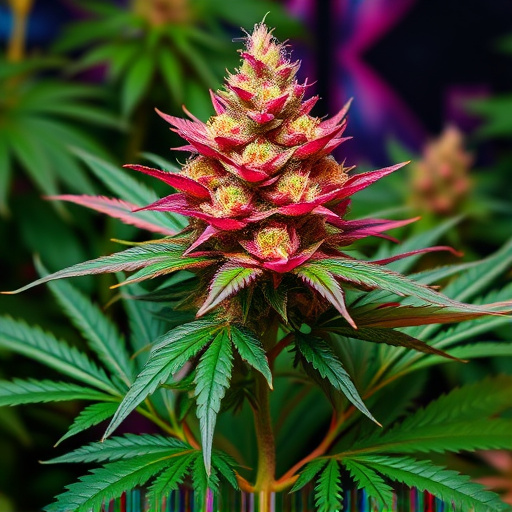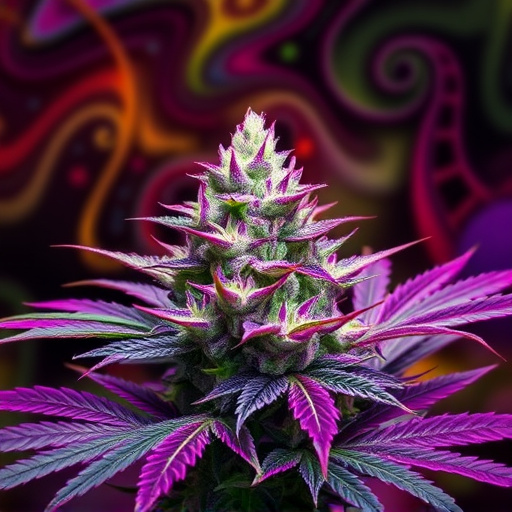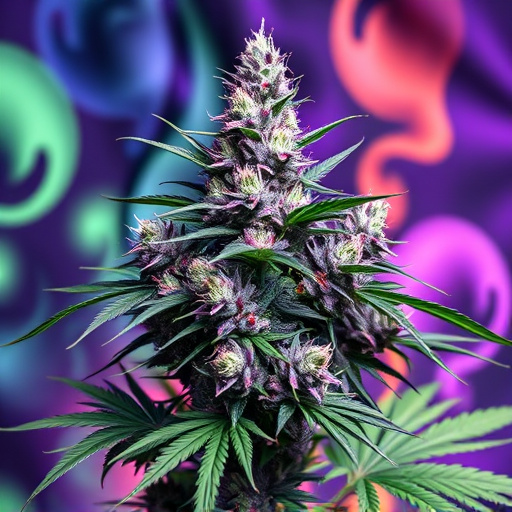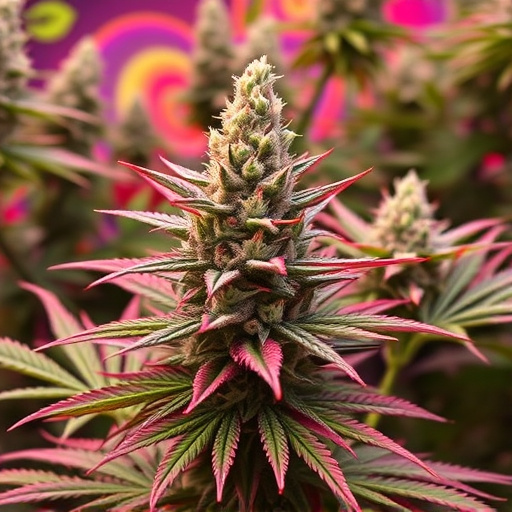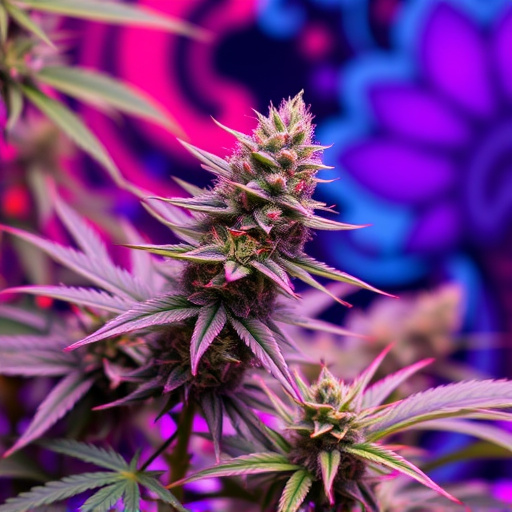Chronic marijuana use, particularly involving potent psychedelic cannabis strains, can significantly harm mental health, especially during adolescence. High THC concentrations disrupt brain chemistry, affecting mood, cognition, and perception, leading to cognitive impairments and memory problems. Regular use may increase the risk of anxiety, depression, and psychosis, exacerbating pre-existing conditions like schizophrenia. Recognizing these risks is crucial for promoting responsible consumption and understanding potential long-term effects on brain health.
“Curios about the consequences of smoking too much weed? This in-depth exploration delves into the multifaceted impact of excessive cannabis use on mental and physical health. From heightened risks of anxiety and depression to respiratory issues and cardiovascular concerns, we dissect the effects of heavy usage, especially concerning psychedelic cannabis strains. Learn how moderation is key to harnessing potential benefits while mitigating significant drawbacks.”
- The Impact on Mental Health: When Usage Exceeds Moderation
- – Exploring the link between heavy cannabis use and mental health issues like anxiety and depression.
- – Discussing potential triggers and long-term effects on brain chemistry.
The Impact on Mental Health: When Usage Exceeds Moderation
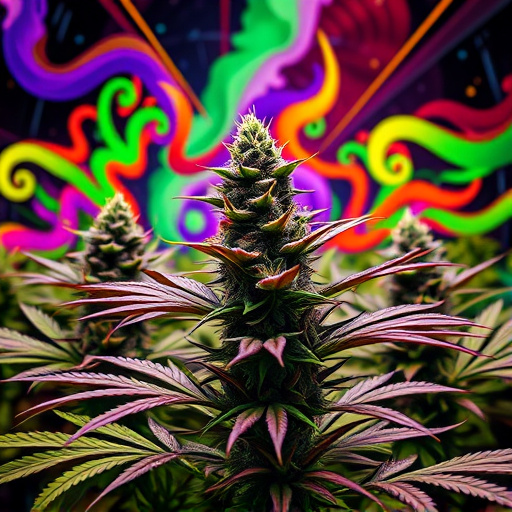
Chronic and excessive use of marijuana, especially with potent psychedelic cannabis strains, can have significant impacts on mental health. While moderate use may be associated with relaxation and altered perceptions, exceeding moderation can lead to potential adverse effects. Studies suggest that heavy cannabis users are at a higher risk of developing mental health disorders such as anxiety, depression, and psychosis, particularly in young individuals whose brains are still developing.
The impact on mental well-being becomes more pronounced when marijuana use becomes a habit. Regular exposure to the active compounds in cannabis, including THC, can disrupt brain chemistry over time, affecting neurotransmitters that regulate mood, cognition, and perception. This disruption may contribute to cognitive impairments, memory problems, and heightened vulnerability to psychological distress. Additionally, the social and environmental factors associated with heavy marijuana use, such as isolation or a lack of structured routines, can exacerbate existing mental health concerns.
– Exploring the link between heavy cannabis use and mental health issues like anxiety and depression.
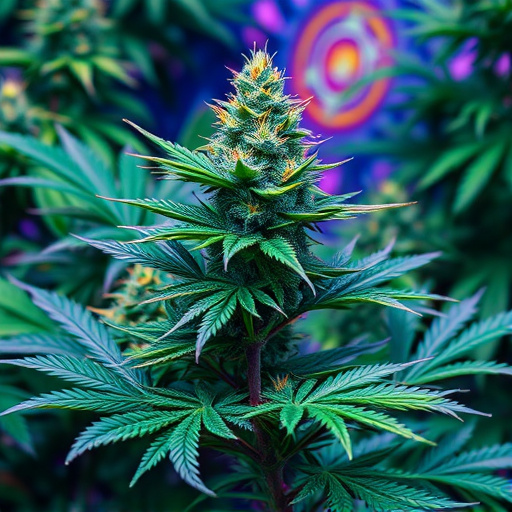
The relationship between heavy cannabis use and mental health is a complex one, with research pointing to a potential link between excessive use, especially of psychedelic cannabis strains, and an increased risk of developing anxiety and depression. While cannabis can temporarily alleviate symptoms for some individuals, chronic and heavy usage may disrupt the brain’s natural balance, particularly in regions associated with mood regulation and fear response.
Studies suggest that regular exposure to high concentrations of THC, the primary psychoactive compound in cannabis, can alter neurotransmitter systems, affecting serotonin and dopamine levels. These neurotransmitters play a crucial role in regulating mood, appetite, sleep, and perception. Over time, heavy cannabis use may contribute to imbalances in these systems, leading to or exacerbating mental health conditions. This is particularly relevant for individuals with pre-existing vulnerabilities or genetic predispositions to psychiatric disorders.
– Discussing potential triggers and long-term effects on brain chemistry.
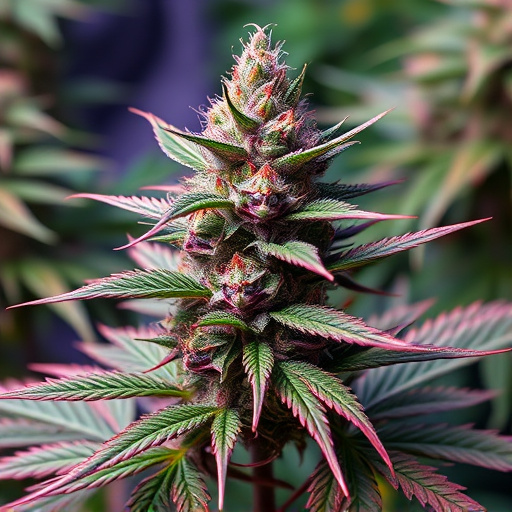
The frequent and excessive use of cannabis, particularly psychedelic cannabis strains known for their potent effects, can have profound impacts on brain chemistry over time. Regular exposure to these compounds can trigger significant changes in neural pathways, affecting various cognitive functions. Research suggests that heavy cannabis use may disrupt the delicate balance of neurotransmitters like dopamine and serotonin, leading to potential long-term effects such as impaired memory, difficulty concentrating, and altered decision-making abilities.
Additionally, some studies indicate that chronic marijuana use can contribute to mental health issues, especially in individuals predisposed to conditions like schizophrenia. The potent psychoactive compounds in psychedelic strains may exacerbate existing symptoms or act as a trigger for psychotic episodes. Understanding these potential risks is crucial, as it highlights the importance of responsible cannabis consumption and recognizing when and how usage might impact brain health, particularly among regular, heavy users.
While occasional use of psychedelic cannabis strains may not cause harm, excessive smoking can significantly impact mental health. The heightened risk of anxiety and depression linked to heavy cannabis use underscores the importance of moderation. Long-term exposure to high THC levels in certain strains can alter brain chemistry, potentially triggering or exacerbating pre-existing mental health conditions. By understanding these risks, users can make informed decisions, ensuring that their relationship with cannabis remains safe and beneficial.

